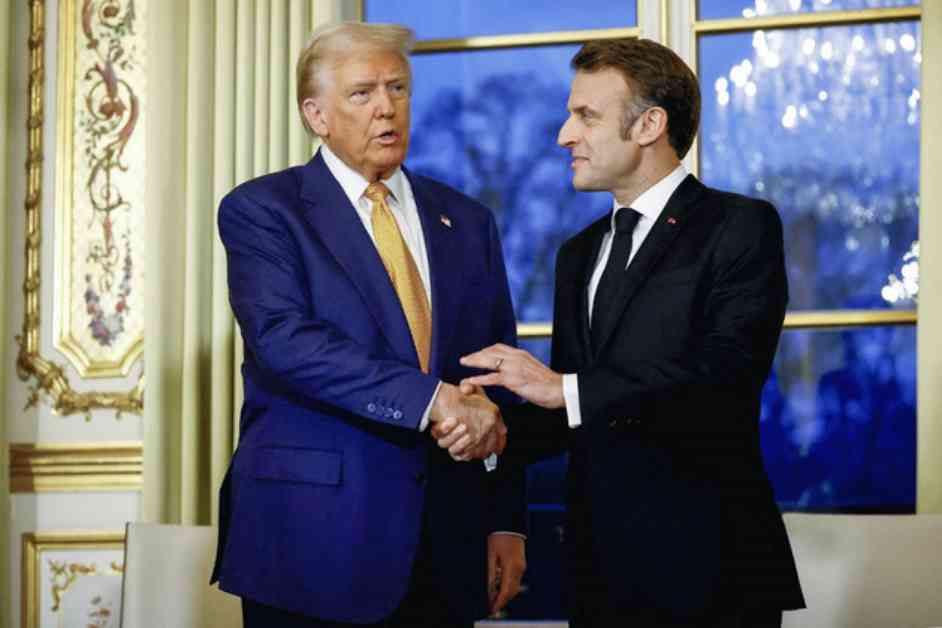US hesitates to prosecute Russia for Ukraine invasion
In a surprising turn of events, the United States has hinted at the possibility of withdrawing from an international effort to hold Russia accountable for its invasion of Ukraine. According to reports from The Telegraph, US envoys declined to categorize Russia as an “aggressor” during a recent meeting of a coalition of nations preparing for a Nuremberg-style tribunal to try Russian President Vladimir Putin for war crimes.
This revelation has sparked concern among European officials, who fear that President Trump’s amiable stance towards Putin could potentially result in the Russian leader evading responsibility for his actions in Ukraine. The refusal to acknowledge Russia as an aggressor has cast doubt on the upcoming final meeting of the coalition, known as the “core group,” which has been spearheading efforts to establish a Special Tribunal for the Crime of Aggression against Ukraine.
The coalition, consisting of 40 nations, aims to create a tribunal that would investigate both the perpetrators and accomplices of the crime of aggression against Ukraine. This tribunal would grant jurisdiction to a dedicated criminal court to address the actions of those involved in the conflict, a task that cannot be pursued by the International Criminal Court in The Hague.
European diplomats have expressed dismay at the US’s reluctance to label Russia as an aggressor, with one official describing it as a “drastic shift” in policy. The refusal to acknowledge the facts of the conflict has raised concerns about the integrity of the international justice system and the importance of holding perpetrators accountable for their actions.
Expert commentary on the situation underscores the significance of recognizing acts of aggression and ensuring that justice is served. The refusal to acknowledge Russia’s role in the conflict could have far-reaching consequences for the credibility of the tribunal and the broader international community’s commitment to upholding justice and peace.
Trump’s Controversial Statements and International Reactions
President Trump’s recent comments regarding the leaders of France, the UK, and Ukraine have further added to the complexity of the situation. In a statement to Fox News, Trump criticized French President Emmanuel Macron and UK Prime Minister Keir Starmer for their perceived inaction in resolving the conflict in Ukraine. He also downplayed the role of Ukrainian President Volodymyr Zelensky in peace negotiations, raising questions about the dynamics of international diplomacy in the region.
The implications of Trump’s remarks have reverberated across the international community, with concerns about the effectiveness of diplomatic efforts and the need for constructive dialogue among world leaders. The upcoming visits of Macron and Starmer to the White House are expected to shed light on the future of diplomatic relations and the prospects for peace in Ukraine.
Meanwhile, UK cabinet minister Pat McFadden has emphasized the importance of focusing on tangible outcomes in diplomatic engagements, highlighting the need for concrete actions to complement rhetorical statements. The evolving dynamics of international diplomacy underscore the challenges of navigating complex geopolitical issues and balancing conflicting interests among key stakeholders.
Global Responses to Disinformation Campaigns and Humanitarian Crises
The spread of disinformation and propaganda in conflict zones has emerged as a critical issue in the global landscape, with recent reports highlighting Russian efforts to influence public opinion and sway political outcomes in various countries. The German Interior Ministry’s warning about a Russian disinformation operation targeting voters and supporting far-right groups underscores the need for vigilance and countermeasures to combat such tactics.
In addition to disinformation campaigns, humanitarian crises such as the release of Israeli captives in exchange for Palestinian prisoners and the asylum request of a North Korean soldier in Ukraine highlight the complex humanitarian challenges facing the international community. The response of governments and organizations to these crises underscores the importance of upholding human rights and promoting peaceful resolutions to conflicts.
As world leaders grapple with these complex issues, the role of journalism and press freedom in holding governments accountable and informing the public remains paramount. The legal battle between the Associated Press and the Trump administration over access to presidential events underscores the ongoing challenges facing journalists and media organizations in fulfilling their duty to report on matters of public interest.
In conclusion, the evolving geopolitical landscape and humanitarian crises underscore the importance of international cooperation, diplomatic engagement, and respect for human rights in addressing global challenges. The need for transparency, accountability, and ethical leadership in navigating complex issues remains essential for promoting peace, justice, and stability in an increasingly interconnected world.

















